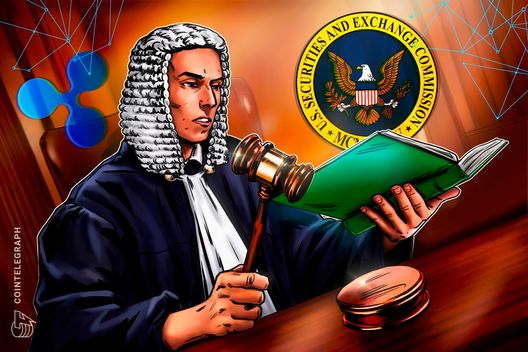Legal Resolution in the Ripple vs. SEC Case Signals Industry Progress
Introduction: The End of a Pivotal Legal Battle
The prolonged legal confrontation between Ripple Labs and the U.S. Securities and Exchange Commission (SEC), initiated in December 2020, is nearing its conclusion. This case has been a defining moment for the cryptocurrency sector, shaping regulatory perspectives and industry standards across the United States.
Settlement and Asset Distribution: A Step Toward Closure
Recently, Ripple and the SEC jointly petitioned the court to release a total of $125 million held in escrow, earmarked for settlement expenses. This motion proposes that $50 million be allocated to the SEC as a civil penalty, while the remaining $75 million be returned to Ripple, subject to judicial approval. Both parties emphasized that this resolution would streamline the legal process, avoiding further appeals and bringing a definitive end to over four years of contentious litigation.
Significance of the Case for Cryptocurrency Regulation
This lawsuit has been a landmark in the evolution of crypto regulation in the U.S. Its resolution is viewed as a symbolic victory for the industry, which has made significant strides toward establishing its legitimacy despite ongoing regulatory challenges. The case’s outcome could influence future legal interpretations and regulatory approaches toward digital assets.
Key Court Rulings and Their Impact
In July 2023, Judge Analisa Torres delivered a pivotal ruling: secondary sales of XRP tokens do not qualify as securities transactions. This decision marked a substantial victory for Ripple and the broader crypto community, affirming that certain types of token exchanges fall outside the scope of securities regulation. Conversely, the judge also determined that XRP sales during funding rounds, where tokens were offered as investment compensation, did constitute securities transactions. This nuanced ruling clarified the legal boundaries for different types of crypto sales.
Following this, in August 2024, Judge Torres mandated Ripple to pay a $125 million fine to the SEC. The ruling underscored the ongoing complexity of classifying digital assets within existing securities laws.
Recent Developments and Industry Reactions
Despite the favorable rulings, the SEC expressed dissatisfaction and filed an appeal in October 2024, just ahead of the U.S. presidential election. However, Ripple’s CEO, Brad Garlinghouse, announced in a March 19 social media post that the SEC had decided to withdraw its appeal. This announcement was accompanied by a video message from Garlinghouse, celebrating what many interpret as the de facto conclusion of the case.
Subsequently, Ripple agreed to drop its cross-appeal, and the court approved the refund of $75 million from the original penalty, allowing Ripple to retain a significant portion of the funds. This outcome not only marks a legal victory for Ripple but also sets a precedent for the industry, signaling a potential shift toward clearer regulatory pathways.
Industry Implications and Future Outlook
While the case’s resolution is a positive development, it leaves unresolved questions about the broader legal landscape for cryptocurrencies. Notably, the ruling did not establish a comprehensive legal precedent for the industry, leaving many questions about how other tokens and projects will be classified in future cases.
As the crypto sector continues to evolve, this case serves as a critical reference point. It highlights the importance of clear regulatory frameworks and the need for ongoing dialogue between industry stakeholders and regulators to foster innovation while ensuring investor protection.
Conclusion: A Turning Point for Crypto Legitimacy
The conclusion of the Ripple-SEC lawsuit marks a significant milestone in the journey toward mainstream acceptance of cryptocurrencies in the United States. While challenges remain, the case’s outcome offers hope for a more defined and fair regulatory environment, encouraging further growth and innovation within the digital asset space. As the industry moves forward, the lessons learned from this legal saga will undoubtedly influence future policy and legal standards, shaping the trajectory of crypto regulation for years to come.

